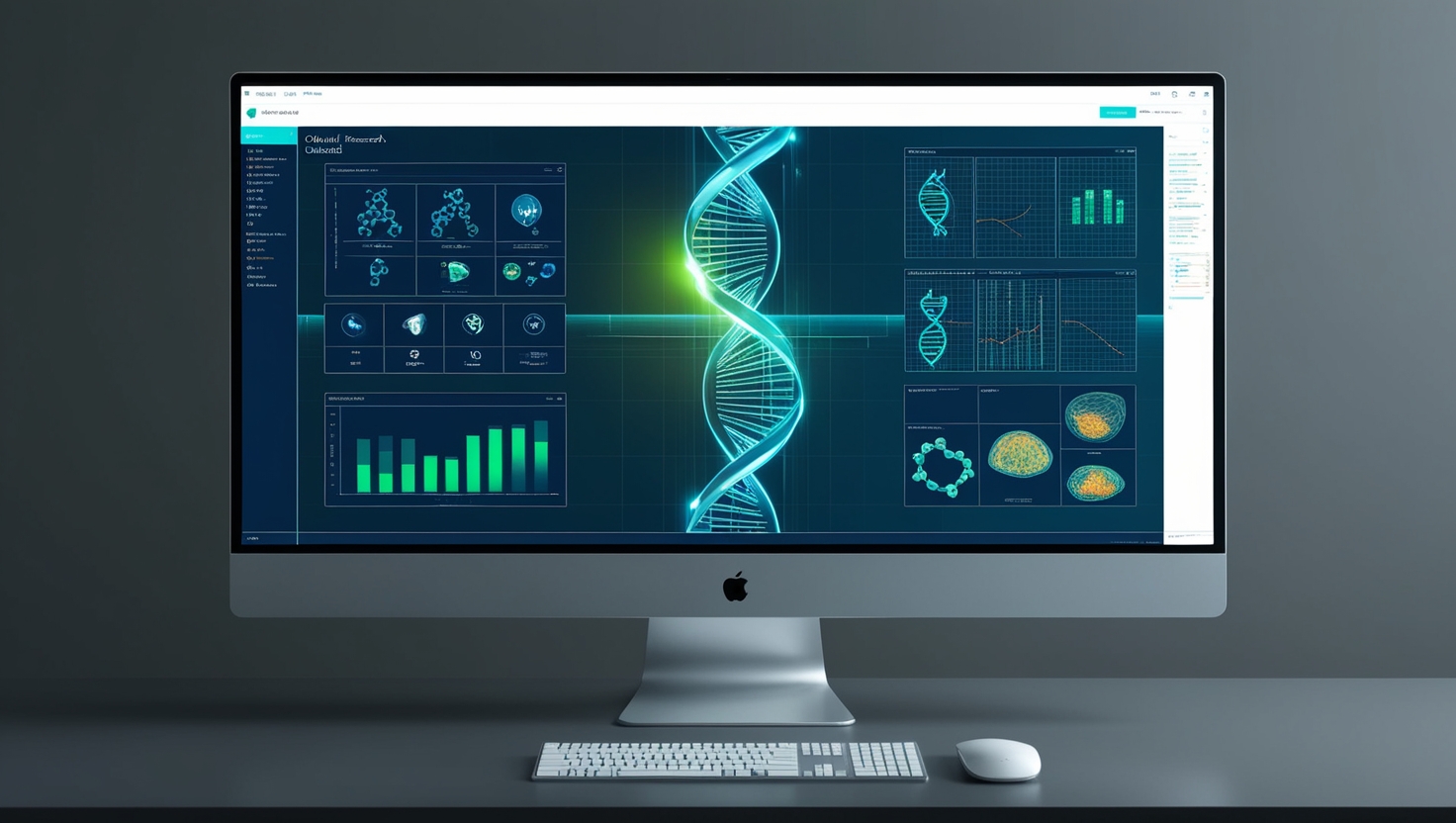The pharmaceutical industry is undergoing a digital transformation, with artificial intelligence (AI) playing a crucial role in revolutionizing drug discovery. Traditional drug development is a lengthy and expensive process, often taking more than a decade and costing billions of dollars. However, AI-powered pharmaceutical research software is streamlining this process, reducing costs, and accelerating the discovery of life-saving medications.
The Role of AI in Drug Discovery
1. Enhancing Drug Screening and Target Identification
AI-driven algorithms analyze vast datasets to identify potential drug candidates. By leveraging machine learning, AI can predict how different compounds interact with biological targets, significantly reducing the time needed for initial drug screening. This technology enables researchers to pinpoint viable molecules that have a higher probability of success in clinical trials.
2. Accelerating Clinical Trials
Clinical trials are one of the most time-consuming phases of drug development. AI enhances patient recruitment by identifying suitable candidates based on genetic markers, medical history, and other criteria. It also helps in monitoring patient responses in real time, allowing for faster adjustments to trial protocols.
3. Drug Repurposing
AI is highly effective in identifying existing drugs that could be repurposed for new medical conditions. By analyzing large-scale biomedical databases, AI can detect patterns and correlations that suggest alternative therapeutic uses for already approved drugs. This reduces the time and cost associated with bringing new treatments to market.
4. Predicting Drug Efficacy and Safety
AI-powered pharmaceutical research software can simulate drug interactions at the molecular level, helping scientists predict potential side effects before conducting human trials. This predictive analysis reduces the risks associated with new drug formulations and enhances patient safety.
Benefits of AI in Pharmaceutical Research
1. Faster Drug Development
AI significantly cuts down the time required to discover and develop new drugs. What once took years can now be accomplished in months, allowing for quicker responses to emerging health threats.
2. Cost Reduction
Traditional drug development costs range from $1 billion to $2.6 billion per drug. AI-driven approaches reduce research and development (R&D) expenses by automating complex processes and minimizing trial-and-error experimentation.
3. Improved Accuracy and Efficiency
AI enhances the accuracy of drug discovery by reducing human error. With powerful machine learning algorithms, AI can process vast amounts of medical data and uncover insights that might be missed using conventional methods.
4. Personalized Medicine
AI enables precision medicine by tailoring drug treatments to individual patients. By analyzing genetic profiles and patient data, AI can recommend the most effective treatments with minimal side effects, leading to better healthcare outcomes.
Challenges and Ethical Considerations
1. Data Privacy Concerns
AI relies on vast amounts of patient data, raising concerns about privacy and security. Pharmaceutical companies must implement robust data protection measures to ensure patient confidentiality and comply with regulations like HIPAA (Health Insurance Portability and Accountability Act).
2. Regulatory Compliance
AI-driven drug development must meet strict regulatory requirements set by agencies like the FDA (Food and Drug Administration). Ensuring AI-generated drug candidates meet safety and efficacy standards is crucial for approval.
3. Bias in AI Models
AI models can inherit biases from training data, leading to disparities in drug development outcomes. Efforts must be made to ensure diversity in datasets to create fair and equitable medical solutions.
4. Ethical Use of AI in Drug Discovery
As AI plays a more prominent role in pharmaceutical research, ethical concerns arise about the balance between automation and human expertise. The industry must establish guidelines to ensure AI remains a tool for enhancement rather than a replacement for human decision-making.
Future of AI in Pharmaceutical Research
The future of AI-powered pharmaceutical research software looks promising. As technology continues to advance, AI will further refine drug discovery processes, making them even faster, more efficient, and cost-effective.
1. AI and Quantum Computing
The integration of AI with quantum computing has the potential to revolutionize molecular simulations, enabling drug discovery at an unprecedented scale.
2. AI-Powered Lab Automation
Robotics and AI-driven lab automation will further accelerate drug testing and formulation processes, reducing human workload and improving productivity.
3. Expanded Use of AI in Personalized Medicine
AI will continue to refine personalized medicine approaches, ensuring that treatments are optimized for individual patients based on their genetic and biological characteristics.
Conclusion
AI-powered pharmaceutical research software is transforming the drug discovery process, offering faster, more efficient, and cost-effective solutions for developing new medications. Despite challenges related to data privacy, regulatory compliance, and ethical concerns, the benefits of AI in drug discovery far outweigh the drawbacks. As AI technology continues to evolve, it will play an even greater role in shaping the future of medicine, bringing innovative treatments to patients worldwide.
By embracing AI-driven advancements, the pharmaceutical industry can achieve groundbreaking medical discoveries, ultimately improving global healthcare outcomes.
FAQs
Q1: How does AI help in drug discovery?
AI helps by analyzing vast datasets to identify potential drug candidates, predicting drug efficacy, repurposing existing drugs, and accelerating clinical trials.
Q2: Can AI replace human researchers in drug development?
No, AI serves as an advanced tool that enhances human expertise. It automates data analysis and predictions but requires human oversight for decision-making.
Q3: Is AI in pharmaceutical research safe?
Yes, AI undergoes rigorous validation and regulatory scrutiny before its findings are applied in drug development. However, challenges like bias and data privacy must be addressed.
Q4: How long does AI reduce the drug discovery process?
AI can reduce drug discovery timelines from several years to a few months, significantly accelerating the development of new treatments.
Q5: What are some examples of AI-driven pharmaceutical research software?
Examples include IBM Watson for Drug Discovery, BenevolentAI, Atomwise, and Insilico Medicine, all of which utilize AI to enhance pharmaceutical R&D.



